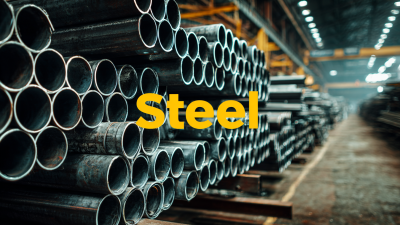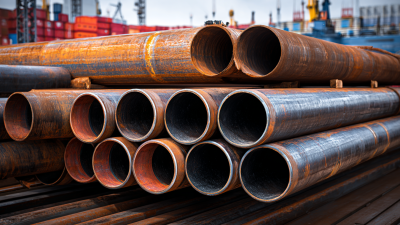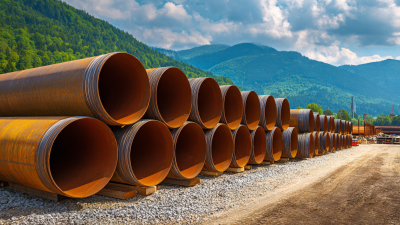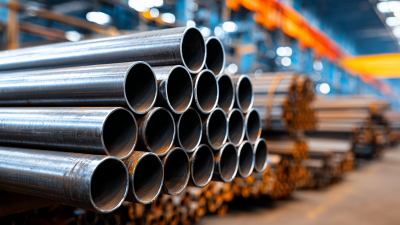Innovations in steel pipe technology are transforming the landscape of construction and infrastructure, paving the way for enhanced durability, efficiency, and sustainability. According to a report by Research and Markets, the global steel pipe market is anticipated to reach USD 300 billion by 2026, driven by the increasing demand for high-quality and resilient materials in civil engineering projects. The advent of advanced manufacturing processes, such as seamless steel pipe production and corrosion-resistant coatings, is significantly improving the performance and longevity of these vital construction elements.
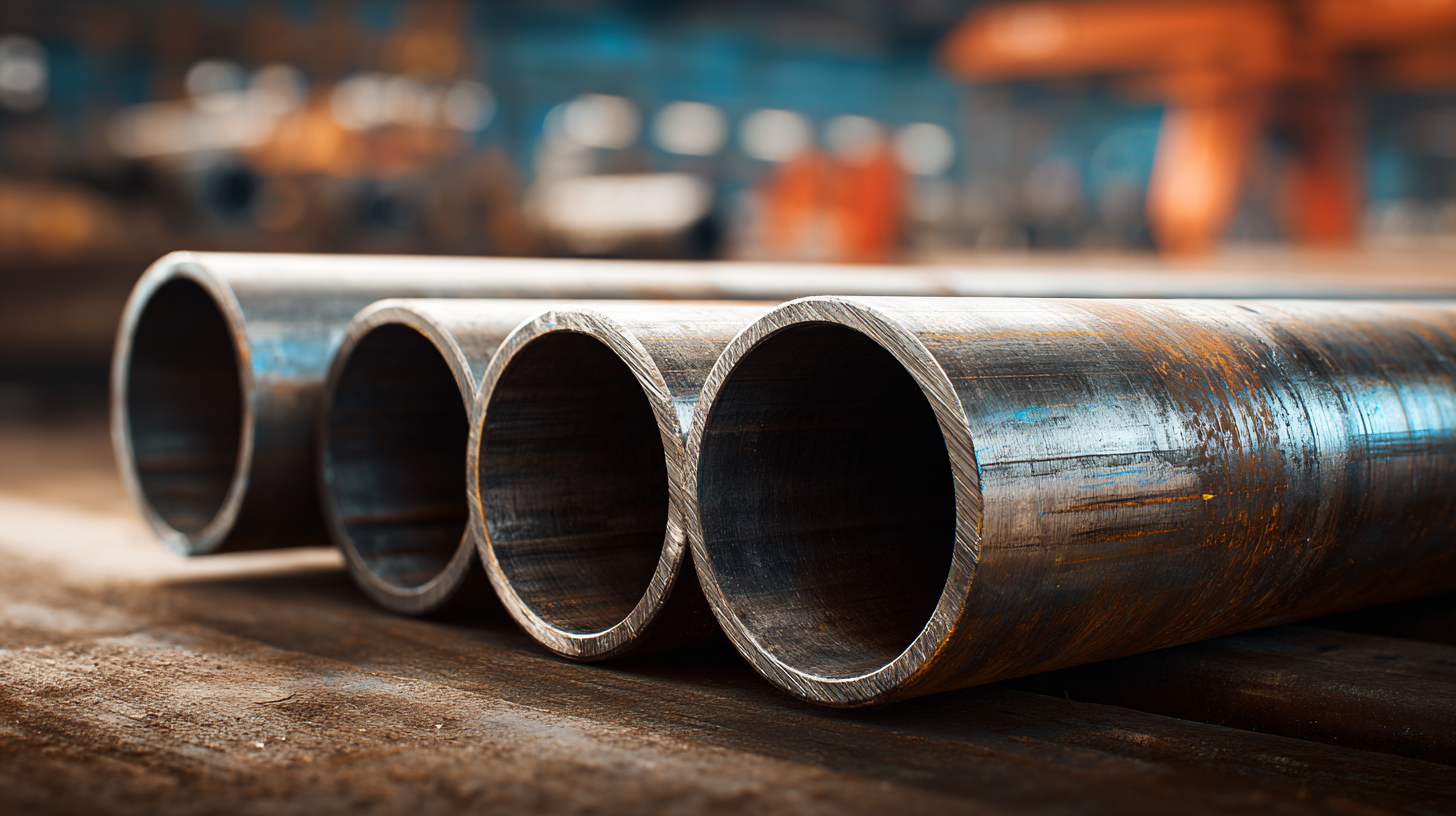
Moreover, the integration of smart technologies in steel pipe systems is facilitating real-time monitoring and maintenance, thereby reducing downtime and ensuring safety. As the construction industry faces challenges such as urbanization and resource scarcity, the role of steel pipes will continue to evolve, ushering in a new era of innovation and reliability in infrastructure development.
Innovative steel pipe technologies are at the forefront of transforming construction practices, addressing the rising demand for efficiency and sustainability in the industry. Recent advancements, such as the strategic partnerships to introduce modular bridge technology, showcase how steel pipes can facilitate quicker and more adaptable infrastructures. Such innovations not only enhance construction timelines but also contribute to the overall resilience of urban structures.
Furthermore, developments in materials like Glass Fiber Reinforced Polymer (GFRP) demonstrate a significant shift in the utilization of steel in construction. By merging traditional steel pipes with modern materials, companies are creating solutions that offer greater durability while reducing environmental impacts. This trend aligns with the broader movement towards sustainable construction materials, revolutionizing how buildings are designed and constructed for the future. As innovative steel pipe technologies continue to evolve, they promise to redefine the landscape of construction and infrastructure globally.
| Innovation Technology | Application | Benefits | Impact on Costs (%) |
|---|---|---|---|
| Corrosion-Resistant Coatings | Oil and Gas Pipelines | Increased Durability | 25% |
| Advanced Welding Techniques | Structural Steel Pipelines | Enhanced Structural Integrity | 20% |
| Smart Pipe Technology | Water Distribution Systems | Real-Time Monitoring | 30% |
| Modular Pipe Systems | Construction Projects | Faster Installation | 15% |
| Eco-Friendly Steel Production | Infrastructure Development | Reduced Carbon Footprint | 10% |
The integration of smart sensors in steel pipes is revolutionizing the construction and infrastructure sectors, allowing for unprecedented levels of monitoring and management. According to a report by McKinsey, the implementation of IoT solutions, including smart sensors, is expected to reduce operational costs in construction projects by up to 20% by 2025. These sensors enable real-time data collection on structural integrity, fluid dynamics, and environmental conditions, ensuring that any potential issues can be addressed promptly. This proactive approach not only enhances the safety and longevity of infrastructure but also optimizes maintenance schedules, significantly reducing downtime.

Moreover, a survey conducted by the World Economic Forum highlights that smart infrastructure can lead to a 10-15% increase in efficiency in resource management. For steel pipes, incorporating these innovations means that manufacturers can track corrosion, temperature variations, and pressure fluctuations more effectively. The predictive analytics derived from this data assist engineers in making informed decisions, ultimately leading to more reliable and sustainable construction practices. As smart technology continues to progress, the steel pipe industry stands to gain immensely, paving the way for smarter, safer urban environments.
The shift towards sustainability in steel pipe production is becoming increasingly crucial as the construction and infrastructure sectors evolve. With India’s demand for green steel on the rise, driven by stringent climate goals and sustainable shifts in various industries, the innovations in steel pipe production are setting the stage for a more eco-friendly future. This transition reflects a broader industry trend toward low-carbon solutions, highlighting the importance of integrating sustainable practices at every stage, from production to application.
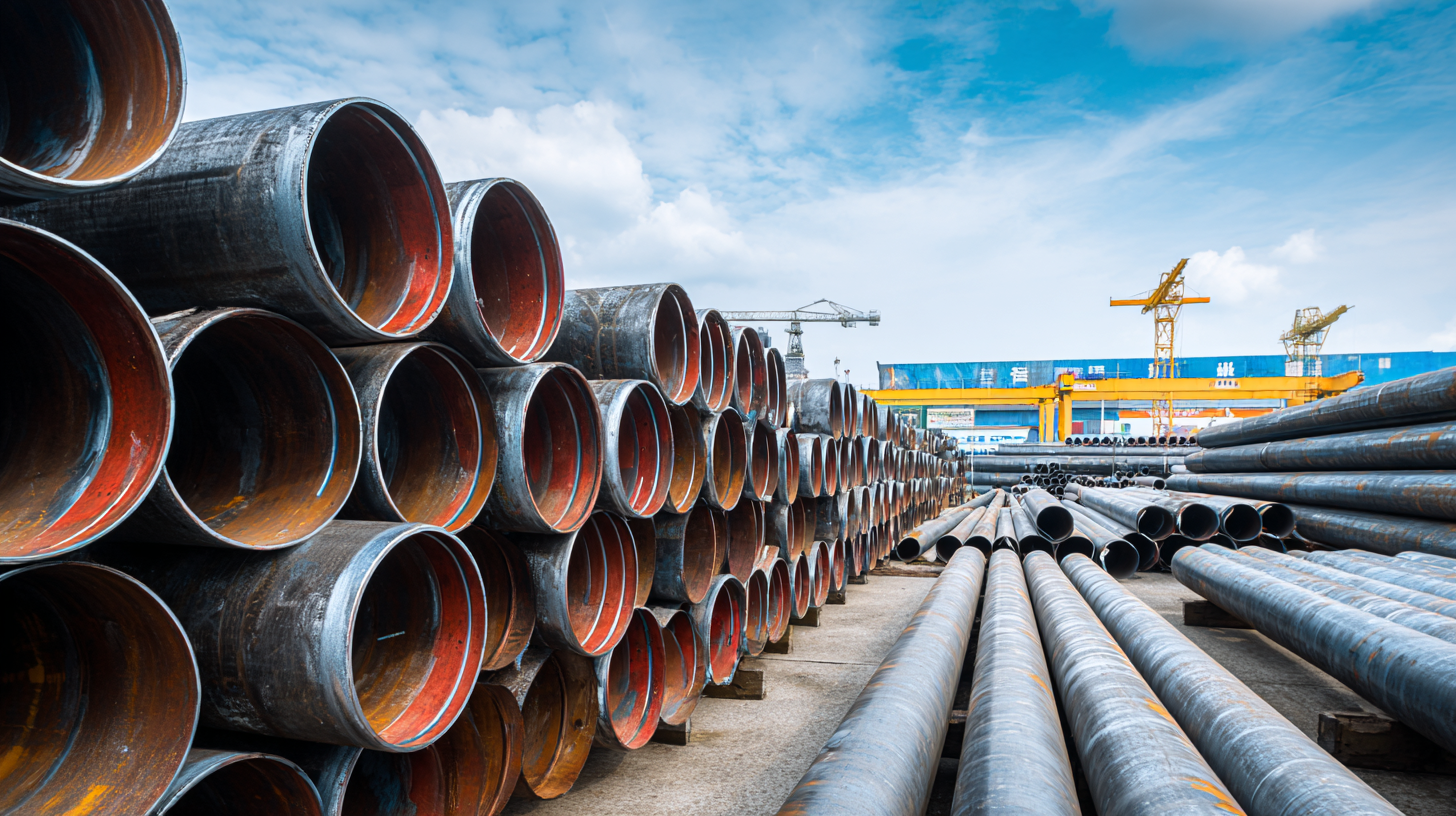
Tips: To optimize sustainability in your projects, consider sourcing materials that emphasize green credentials, such as those certified for low emissions. Additionally, explore modular construction methods that leverage structural steel, which not only reduces waste but also accelerates project timelines.
As the global market for steel pipes is projected to hit USD 154.8 billion, the need for sustainable practices will only intensify. By embracing advancements in sustainable steel production, companies can significantly reduce their environmental impact while meeting the increasing demand for resilient infrastructure. Focusing on the integration of sustainable innovations will be key to thriving in this evolving market landscape.
In the rapidly evolving landscape of construction and infrastructure, steel pipes play a crucial role in the development of smart infrastructure, particularly through the integration of Internet of Things (IoT) applications. The durability and versatility of steel allow for the creation of robust systems capable of supporting various smart technologies. From sensor-embedded pipelines that monitor structural integrity to automated water flow management systems, steel pipes are laying the groundwork for a more efficient and connected urban ecosystem.
Tips: When considering IoT applications in your infrastructure projects, focus on selecting high-quality steel pipes that can accommodate sensor installations without compromising their strength. Additionally, invest in training for your team on the latest IoT technologies to ensure they can effectively implement these innovations.
As smart cities continue to emerge, the demand for interconnected infrastructure will only grow. Steel pipes equipped with IoT capabilities can significantly enhance resource management, energy consumption, and maintenance forecasting. This transformation not only contributes to sustainability but also leads to cost savings in both installation and long-term operation.
Tips: It's essential to conduct thorough research on IoT solutions before implementation. Collaborate with technology partners who understand the unique requirements of steel construction to maximize your project's potential for innovation.
Advanced coatings are revolutionizing the longevity and performance of steel pipelines, crucial to modern construction and infrastructure. According to a report by the International Energy Agency, the global demand for pipelines is expected to rise by 15% over the next decade, necessitating innovations in materials to ensure reliability and sustainability. One promising solution is the application of advanced polymer coatings, which enhance corrosion resistance and reduce maintenance costs. These coatings can extend the lifespan of steel pipelines by up to 30 years, significantly lower operational expenses over time.
Furthermore, the use of nanotechnology in coating formulations is allowing for the development of smart coatings that not only protect against corrosion but also monitor the pipeline's condition in real-time. A study from the American Society of Civil Engineers indicates that utilizing these advanced coatings could decrease infrastructure failures by approximately 40% within the next 20 years. By integrating technological advancements in coatings, the construction industry can ensure that steel pipelines remain durable, reliable, and ready to meet future demands, ultimately shaping a more resilient infrastructure landscape.
This chart illustrates the impact of advanced coatings on the lifespan of steel pipelines. As construction requirements evolve, improved materials contribute significantly to maintenance cost reduction and durability.
